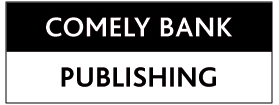
Opinions are fair enough and each writer’s path to publication is different. The reaction to Ms Barber’s column was somewhat predictable – there were many comments, mainly from those who self-publish, disputing in detail every single one of Ms Barber’s reasons for not self-publishing.
Nick Spalding, one of self-publishing huge success stories, joined in with a comment, saying that obviously such a feature required a companion piece by a self-published author relating why he or she* would not go down the route of traditional publishing route.
[Please write it Mr Spalding – we look forward to what we are sure will be an informed and witty piece.]
While Comely Bank Publishing is always open to different opinions and not all of the (extremely articulate) arguments for self-publishing that were put forward by the commentators convinced, the article did seem rather out of date, generalist and inaccurate in places.
Here are some of Ms Barber’s arguments and our counter-arguments:
You have to forget writing for a living – Ms Barber claims as a self-published writer, you are going to be marketing for your living, not writing putting that figure at 10/90 percent split. We’d be interested to know where she got this precise figure from. Applications for agents (and presumably that elusive publication deal) often ask prospective authors what marketing activities they can do and what their social media following is.
Gatekeepers are saving you from your own ego. With a rather peculiar cabinet-maker metaphor, Ms Barber claims that modern-day publishers (the gatekeepers) will not sell your cabinet if it’s rubbish and doesn’t work properly. Seriously? As many of the commentators on the piece pointed out – the ultimate gatekeeper is the buying public and if they buy your book in sufficient numbers.
Talent, quality and craftsmanship (womanship) is no indicator of what will sell, nor does it indicate that your book will be published by one of the big publishing houses.
Here at Comely Bank Publishing, we are a publishing co-operative. We work with each other, reading and critiquing each others’ books, and making suggestions for improvements. We insist on professional proof-reading (some of us have been lucky enough to find exceptional proof-readers among our friends and family) and professional type-setting and covers. Then we award the CBP stamp.
You can forget Hay Festival and the Booker. “Self-published books are not eligible for major prizes like the Baileys, the Costa and the Man Booker”. Oops, Ms Barber – this year’s Bailey’s longlist did include a self-published book. The tide’s turning.
Self-publishing can make you look like a fool. Ms Barber complains about those self-published writers who spend their lives promoting their own or other self-published books. A lot of them do this, but a lot of them don’t – and a lot of traditionally published authors do this (and a lot of them don’t). Choose your Twitter followers wisely.
One can’t help feeling that Ms Barber has also indulged in the very behaviour she complains about. The why I wouldn’t self-publish column is certainly attracting plenty of publicity. Unashamedly blatant marketing behaviour? Almost certainly.
You risk looking like an amateur. Ms Barber extols the benefits of traditional publishing where one is aided by editors, proof-readers, professional cover designers, marketers and more. Again, this seems a rather out-of-date argument. See above for our point about what authors published through Comely Bank Publishing do in order to achieve professional books.
You can pay for those services and many self-published authors do, seeing it an investment and part of the learning curve. And then they pay the fees – fees that they regard as the equivalent of what traditionally-published authors pay their agents and publishing houses. Except they are going to get greater royalties.
*Despite the general consensus that ‘they’ is now de rigeur for the singular, CBP can’t yet get behind it.







